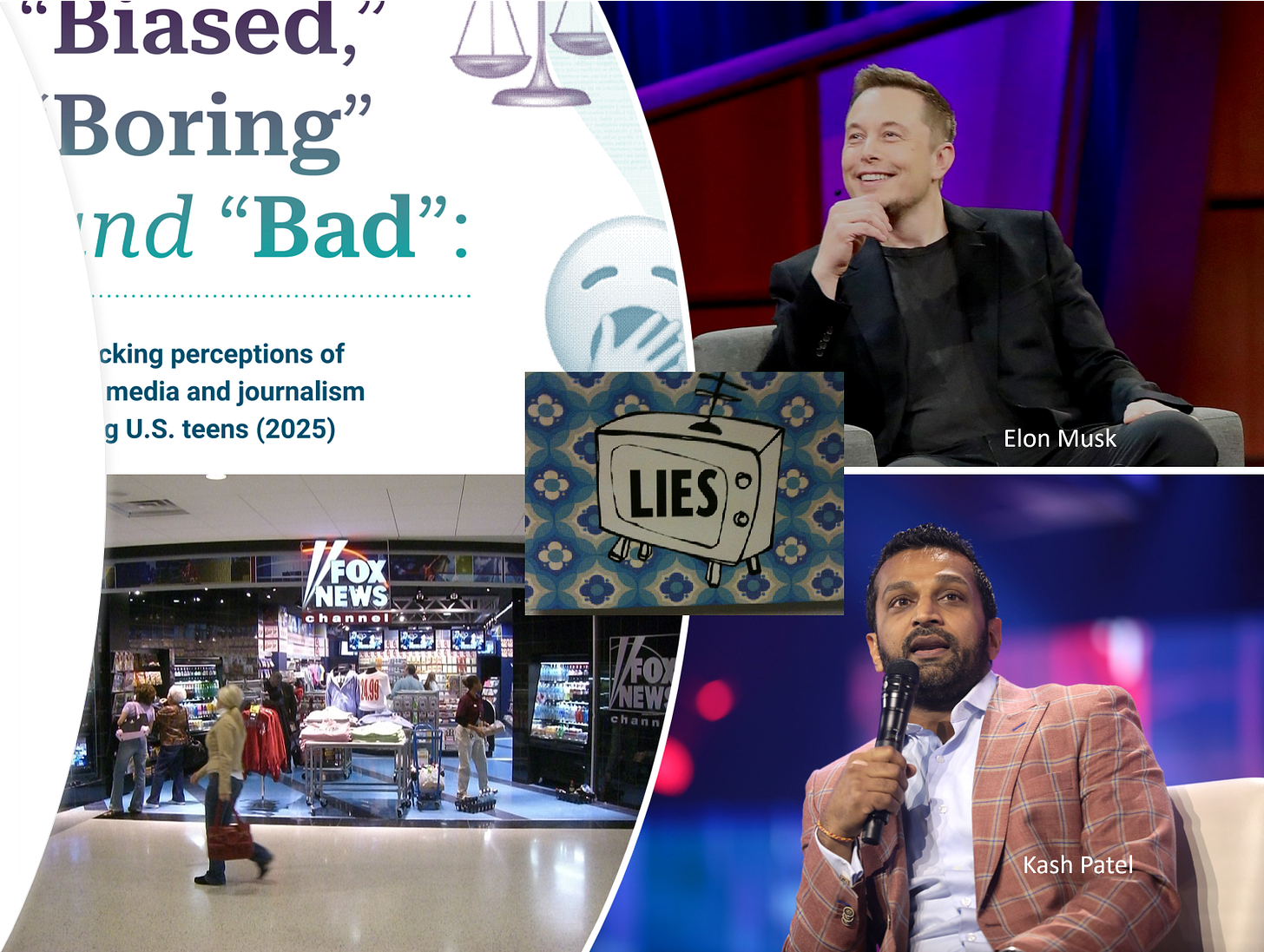Do Journalists Protect or Harm Democracy?

Almost half (45%) of teens in a recent survey by The News Literacy Project said journalists harm democracy. Only 56% believed reporters value fairness and accuracy. 80% concluded that news content is subjective, and nearly 70% thought press outlets intentionally add bias to their coverage. The cynicism illustrated in the study reflects one of the extreme positions toward the press that is undermining democratic norms.
The other extreme is the blind trust that citizens have in certain news outlets. As I noted in The Anatomy of Fake News (University of California Press, 2020), history is filled with examples of journalists getting things wrong, inserting bias, or serving as mouthpieces for powerful interests. Indeed, from the Pentagon Papers to Iraq’s nonexistent weapons of mass destruction, the news has at times spread false, baseless, and damaging narratives masquerading as truth. Yet, total rejection of journalism is equally dangerous. Some of the most important democratic movements in U.S. history—from the civil rights outcry following the murder of Emmett Till to the global protests after the killing of George Floyd—were fueled by courageous reporting that forced the public to confront injustice.
In a democracy, the citizen’s job is neither to worship nor to despise the press, but to engage critically with it—to analyze, question, and hold it accountable while defending its freedom to exist. It’s not easy work. Democracy, after all, is a 24-hour job. The alternative is authoritarianism, a system that reduces citizens to obedient, vapid vessels, their lives and futures dictated by power—not by the will of the people. The Gaslight Gazette exists to help citizens do that work—by examining journalism, exposing propaganda, and defending truth.
This mission has never been more urgent, as mounting evidence suggests that citizens are inadvertently leading the nation toward authoritarianism by choosing passive consumption over critical engagement with journalism. Indeed, the powerful know that fake news is their most effective weapon—one that turns people against democracy by sowing cynicism and distrust. Consider Elon Musk, the billionaire owner of X (formerly Twitter) and CEO of Tesla and SpaceX. Musk recently claimed to have uncovered an election scandal in New York City’s mayoral race, alleging that the two candidates—Democratic Party and Working Families Party nominee Zohran Mamdani (who won the race) and Republican Party and Conservative Party nominee Curtis Sliwa—had cheated by appearing twice on the ballot, while his preferred candidate, former Governor Andrew Cuomo, who had to create the Fight and Deliver Party because no existing party would nominate him, appeared only once. Musk seemed unaware that in New York, political parties can cross-endorse candidates, allowing their names to appear multiple times.
When misinformation spreads, it always has consequences. In Ireland, residents recently witnessed how easily fake news can trigger chaos: police were inundated with emergency calls about a supposed loose lion, only to discover it was merely a dog with an unusual haircut. Harmless, perhaps—but it illustrates how swiftly false information can spark public panic.
More dangerously, fake news can stoke prejudice and hate. Recently, Fox News Channel aired a segment about videos supposedly showing people of color complaining about losing government assistance during the 2025 government shutdown. The videos were later revealed to be AI-generated. Though Fox issued a correction, it framed the issue as the public being duped—without admitting the network itself had been spreading racist, fabricated content disguised as journalism. And it’s not just conservatives. Leftists, too, have fallen for sensational claims, such as online theories about President Donald Trump’s health based on photos of bruises and swelling, videos of him falling asleep are spun into proof of hidden medical decline.
This erosion of trust fuels a dangerous doom loop: as fake news spreads, cynicism grows, and even factual reporting becomes suspect. Truth itself becomes relative, collapsing the foundation of democracy, which depends on an informed public capable of discerning fact from fiction.
A recent Politico survey revealed that two-thirds of Americans believe the government lies to them. This widespread distrust crosses—felt by 64% of Trump voters and 70% of Vice President Kamala Harris’s supporters—suggests that people no longer see the government as a democratic institution “of, by, and for the people.” The collapse of trust became painfully clear when Trump’s former FBI Director Kash Patel announced a supposed Halloween terror plot in 2025, instantly dividing Americans along partisan lines.
The distrust extends beyond government. The public’s confidence in science has also deteriorated, partly due to disinformation during the COVID-19 pandemic. The Plandemic conspiracy documentary and missteps by figures such as Dr. Anthony Fauci, who blurred the line between scientific research and political decision-making, fueled skepticism across the ideological spectrum. Today, such scientific denial remains strong in online spaces and contributes to growing numbers of men now reject scientific consensus altogether—a grim testament to how disinformation corrodes not just politics, but the very idea of truth.
So, do journalists protect or harm democracy? The answer depends not on them—but on us. When citizens demand accountability, truth, and transparency, journalism can be democracy’s greatest ally. But when we surrender to cynicism and stop thinking critically, even the free press becomes another tool of manipulation.
Democracy dies not when the press lies, but when the public stops caring to find the truth.
The post How Censorship and Smears Are Chipping Away at Democracy and Freedom first appeared on Dissident Voice.This post was originally published on Dissident Voice.